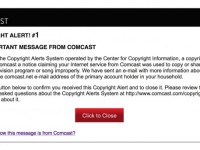Canadian Internet and telecom providers have, for many years, disclosed basic subscriber information, including identifiers such as name, address, and IP address, to law enforcement without a warrant. The government has not only supported the practice, but actively encouraged it with legislative proposals designed to grant full civil and criminal immunity for voluntary disclosures of personal information.
Last month, the Supreme Court of Canada struck a blow against warrantless disclosure of subscriber information, ruling that there is a reasonable expectation of privacy in that information and that voluntary disclosures therefore amount to illegal searches.
My weekly technology law column (Toronto Star version, homepage version) notes the decision left little doubt that Internet and telecom providers would need to change their disclosure policies. Last week, Rogers, the country’s largest cable provider, publicly altered its procedures for responding to law enforcement requests by announcing that it will now require a court order or warrant for the disclosure of basic subscriber information to law enforcement in all instances except for life threatening emergencies (warrantless disclosures may still occur where legislation provides the lawful authority to do so). Telus advised that it has adopted a similar approach.












